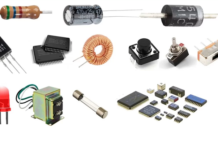
Imagine life without electricity, it’s tough to imagine. The job of an electronic and electrical engineer is to help to improve the systems and devices that we require in our day-to-day life, as well as work with the latest advancements in technology.
Why study electronics engineering
- If you’re interested in the subjects of Science and Math and like electronic devices and this makes you want to create new things that will help others, then it would make sense why you would want to study electronics engineering. Training for this specialty also involves performing various types of tasks, so assignment writing service BidForWriting.com or any other you can find on the Internet will always be useful.
- As a graduate, you’ll have completed plenty of assignments, papers and even a dissertation and contacted professional writing services such as Customwritings.com for essay writing assistance and have now, therefore, obtained some very desirable skills if you study electronics engineering. These skills are particularly important in a world where the job market is tough and competitive.
- As the sector of technology continues to expand, the demand for electronic engineers increases as we seek to have more things that are technologically advanced, hence we need more electronic engineers.
- If you want to make a difference to the world that we live in, for example, to create electric or hybrid vehicles, create more smart energy devices or help to reduce our carbon footprint, you can do this if you study electronics engineering.
- If you have a degree in electronics engineering you will probably open up doors to a wide range of careers. For instance, you could enter into the world of telecommunications, broadcasting, government, research, or energy.
- Electronic engineers will also demand a high salary. In the U.K, if you have an electronics engineering degree and you are a graduate, the average salary you would expect is over £26,000, which for a starting salary is a lot higher than many other starting salaries. IN fact, your salary can also increase to over £68,000 if you go on to achieve chartered status.
- If you like to travel, a degree in electronics engineering will be useful. Engineering is a profession that is required all over the world, so there are endless opportunities for electronics engineering graduates around the globe. This may be one of the reasons why you can study electronics engineering in many universities around the world, as this allows you to see how technology changes and develops in different parts of the world. At the same time, you’ll also be able to experience a new culture.
- If you study electronics engineering abroad it’s easier to find work in a different country once you graduate. Remember there are many international companies that require electronics engineers and a lot of these companies are more than happy to employ people who come from other countries if they hit the mark expected. The beauty of electronics engineering is that it works at an international level, so not only will you enjoy your job, you will get paid for what you and you also get to travel. The top countries that offer electronics engineering degrees are: the UK, the US, Australia, France, Germany.
- Electronics engineering is not just about creating electronic circuits. It’s a very flexible field and there are many specialisms that you could consider i.e. telecommunications, radio-frequency engineering, control systems, signal processor, power engineering and microelectronics.
- There are many affordable electronics engineering degrees that you can choose from. Don’t think that all electronics engineering degree courses cost the earth. What you will need to do is just spend time looking and finding the best location when it comes to quality and price. Again, don’t feel that if you’re paying less, your graduate experience will also be less. Consider the below countries for studying electronics engineering: Belgium, Finland, Sweden, Austria and Denmark.
- If you obtain an electronics engineering degree you’ll become a part of an elite group of people. You will probably have heard of Robert Watson-Watt, Alexander Graham Bell, Michael Faraday, Nikola Tesla, and Heinrich Rudolf Hertz. All of these people had Electrical Engineering Majors and now have a legacy that they have left behind them.
- You will never be bored if you choose a career in electronics engineering as new gadgets and devices are created all the time. Devices that have electronic and electrical components are constantly invented, reinvented, and modified so you will never feel that your career is mundane.
The careers you could enter with an Electronics Engineering degree
Graduates who have an electronics engineering degree have very good graduate prospects. Many will be able to enter into various different careers including network engineering, systems analyst, Aerospace, Broadcasting, and IT
The kinds of skills that an Electronics Engineer possesses
- Good skills
- Critical thinking
- A strong interest in technology
- Good communication skills
- A methodical mind
- Good at solving complex problems
- Good at math
- Good time management skills
- Able to plan and prioritize work
The qualifications needed
The qualifications that are needed to study electronics engineering does depend on the university of choice. In general, most universities will require you to have the equivalent of an A-Level in mathematics. If you have studied electronics, chemistry, or physics then these subjects will also be useful.
The kinds of responsibilities an electronics engineer may have
As an electronics engineer, you may need to:
- liaise with clients to discuss proposals
- experiment with theoretical designs
- work with colleagues to create new devices circuits and systems or enhance existing technology
- prepare budgets
- plan for projects
- follow precise development processes
- ensure that the device works in relation to devices that others have developed
- design interfaces that are user-friendly
- supervise colleagues craftspeople and technicians
- make sure safety regulations are adhered to
Bear in mind, the exact tasks that you may be responsible for depending on the level that you are working at.
Working hours of an electronics engineer
In general, you may work around 40 hours a week. However, you may also be expected to work extra hours on weekends and evenings if you are particularly busy and a deadline needs to be met. In these cases, many companies will employ contract staff to help deal with a peek in workloads.
There are much more reasons why you should study electronics in university or college. It is up to you to decide whether to study it or not.


















